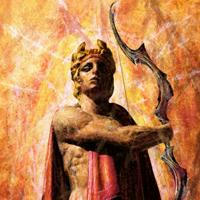
Caverna do Iniciado
- Subscribers
- Post coverage
- ER - engagement ratio
Data loading in progress...
Data loading in progress...
Os mitos são verdadeiros patrimônios da humanidade, um convite para dentro de nós mesmos codificados através de uma linguagem universal e não, meramente, uma curiosidade histórica. Embarque conosco nesta fascinante viagem de autoconhecimento escrita, por Homero, para o homem de todos os tempos e descubra o simbolismo de uma das histórias mais conhecidas em todo mundo! Na companhia de Ulisses realizaremos uma Odisséia interior conferindo as provas que passamos diariamente, inclusive para relembrar quem somos, de onde viemos e para onde regressamos, a nossa Ítaca. Nova Acrópole é uma organização filosófica presente em mais de 50 países há 54 anos, e tem por objetivo desenvolver em cada ser humano aquilo que tem de melhor, por meio da Filosofia, da Cultura e do Voluntariado. Música: trecho de Carmina Burana, de Carl Orff. www.acropolis.org www.acropole.org.br (Brasil - Centro-Oeste, Norte e Nordeste, exceto Bahia) www.nova-acropole.org.br (Brasil - Sul, Sudeste e Bahia) Dúvidas ou comentários? Escreva para [email protected]
The Buddha never claimed to be a saviour who tried to save "souls" by means of a revealed religion. Through his own perseverance and understanding he proved that infinite potentialities are latent in man and that it must be man’s endeavour to develop and unfold these possibilities. He proved by his own experience that deliverance and enlightenment lie fully within man’s range of effort. "Religion of the highest and fullest character can coexist with a complete absence of belief in revelation in any straightforward sense of the word, and in that kernel of revealed religion, a personal God. Under the term personal God I include all ideas of a so-called superpersonal god, of the same spiritual and mental nature as a personality but on a higher level, or indeed any supernatural spiritual existence or force." (Julian Huxley, Religion Without Revelation, pp. 2 and 7.) Each individual should make the appropriate effort and break the shackles that have kept him in bondage, winning freedom from the bonds of existence by perseverance, self-exertion, and insight. It was the Buddha who for the first time in the world’s history taught that deliverance could be attained independently of an external agency, that deliverance from suffering must be wrought and fashioned by each one for himself upon the anvil of his own actions. None can grant deliverance to another who merely begs for it. Others may lend us a helping hand by guidance and instruction and in other ways, but the highest freedom is attained only through self-realization and self-awakening to truth and not through prayers and petitions to a Supreme Being, human or divine. The Buddha warns his disciples against shifting the burden to an external agency, directs them to the ways of discrimination and research, and urges them to get busy with the real task of developing their inner forces and qualities.
When his mind was thus liberated, there came the knowledge, "liberated" and he understood: "Destroyed is birth, the noble life (brahmacariya) has been lived, done is what was to be done, there is no more of this to come" (meaning, there is no more continuity of the mind and body, no more becoming, rebirth). This was the third knowledge attained by him in the last watch of the night. This is known as tevijjâ (Skt. trividyâ), threefold knowledge.n11 Thereupon he spoke these words of victory: "Seeking but not finding the house builder, I hurried through the round of many births: Painful is birth ever and again. O house builder, you have been seen; You shall not build the house again. Your rafters have been broken up, Your ridgepole is demolished too. My mind has now attained the unformed Nibbâna And reached the end of every sort of craving."
Your current plan allows analytics for only 5 channels. To get more, please choose a different plan.
